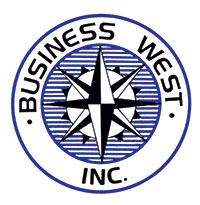There has been considerable discussion in recent newspaper stories about economic incentives for developers– everything from an extensive national series in The New York Times to editorials in The Big Daily Over Town.
The question is– what is too much?
I remember a conversation I had with Jim Thompson who retired several years ago from the Wyandotte Development Inc. (That agency is now the Wyandotte Economic Development Council.)
“You won’t get anyplace in the development business unless you offer incentives,” Thompson told me. He was absolutely correct. And that remains today.
Village West is an excellent example of substantial tax incentives. Much of the infrastructure is being financed with sales tax bonds. Sales tax money pays for such things as streets, sewers and property acquisition rather than going into the coffers of state and local government.
Those bonds will be paid off in 2016. Then I would certainly hope Wyandotte County taxpayers will then see a substantial reduction in property taxes. Lew Levin, the Unified Government financial chief, said the UG will have from $12 to $15 million annually in additional sales tax revenue starting in 2017.
I asked Levin if he could tell me a total of how much tax revenue in Wyandotte County is abated. He said he does not have a total, but could provide information on any specific incentive. If the Unified Government really wants to be transparent, then it should be able to provide that total.
A major incentive in attracting the Kansas Speedway was a 30-year property tax abatement in addition to sales tax bond financing. That property tax abatement could be estimated at more than $70 million. In the final days of negotiations between the Unified Government and speedway officials in the late 1990s, there was discussion that speedway folks were considering an Oklahoma location, according to a Unified Government source.
Businesses and their advisers who seek sites are savvy as they search out the best offers. Often deals turn on what state and local governments can provide in tax incentives.
An Associated Press article published last spring in the Daily Herald serving suburban Chicago, Ill., tells of a “21st Century border war between Kansas and Missouri.” It reports of the millions that the two states lose in the economic development competition.
The article cites more than $750 million that Missouri and Kansas have committed in tax incentives for about 200 businesses. The articles further says state revenue for schools and social services has been sacrificed. The New York Times makes a similar argument for economic development efforts in Texas.
I discussed the incentives that the Hillshire Farms plant (formerly Sara Lee) received with Greg Kindle, the president of the Wyandotte Economic Development Council. He said a very major consideration for tax incentives was that Hillshire, a meat processing plant in the Turner industrial area, employs more than 200 workers at above-average wages. And the plant draws workers from Wyandotte County, he said.
The plant can trace its roots back to a Swift Eckrich meat operation built in the early 1980s. Swift’s history here stretches back to meatpacking days starting in the late 1800s in the Armourdale community.
The New York Times reported Sara Lee received $57 million in state and local tax incentives to stay in Wyandotte County. Information from the Unified Government’s website indicates that for the past two years, the company has paid no property taxes; prior to that, it paid nearly $300,000 annually.
So how much is too much?
“Don’t assume that we don’t turn down deals,” Kindle said. “Recently we said no to a high-tech firm that paid very low wages. It wasn’t worth it.”
Kindle said it is most important to provide incentives to those companies that pay decent wages and complement the business environment in Wyandotte County.
Kindle’s comments are encouraging. But I still would like to see that total number for local tax incentives.

Murrel Bland is the former editor and publisher of The Wyandotte West
and The Piper Press. He is the executive director of Business West.
